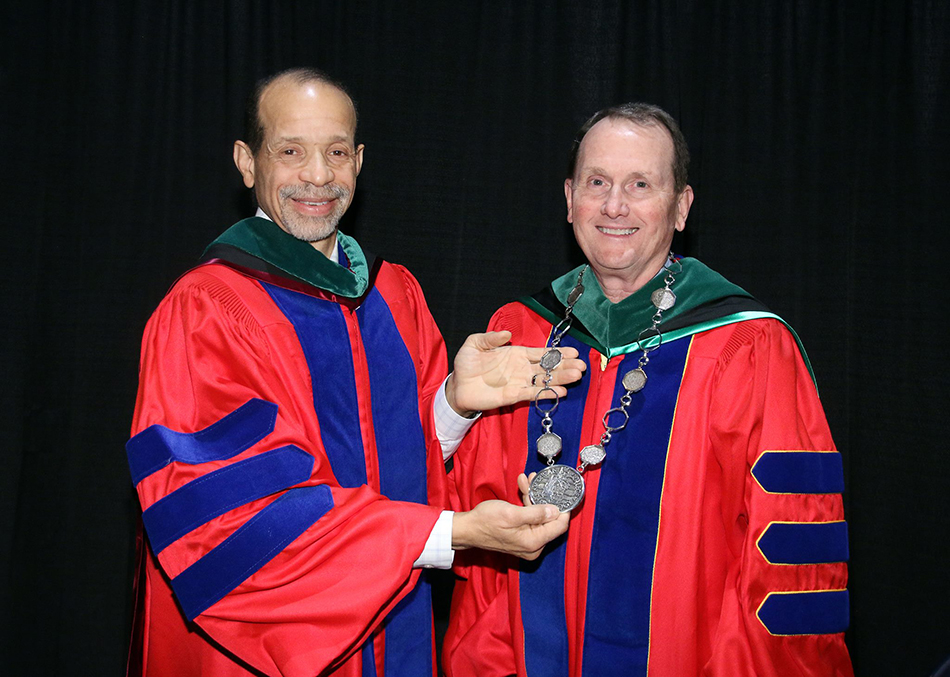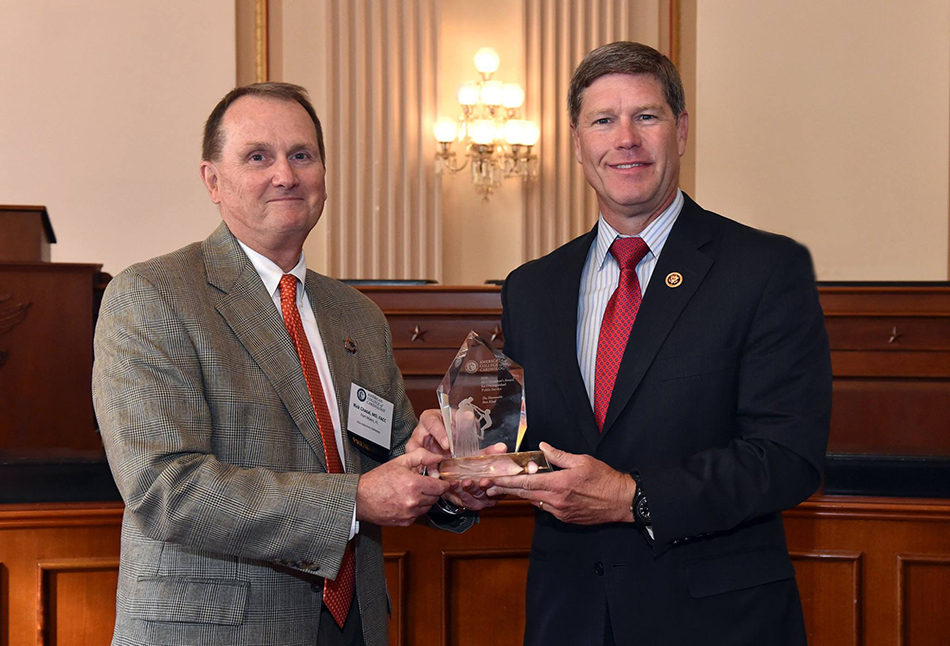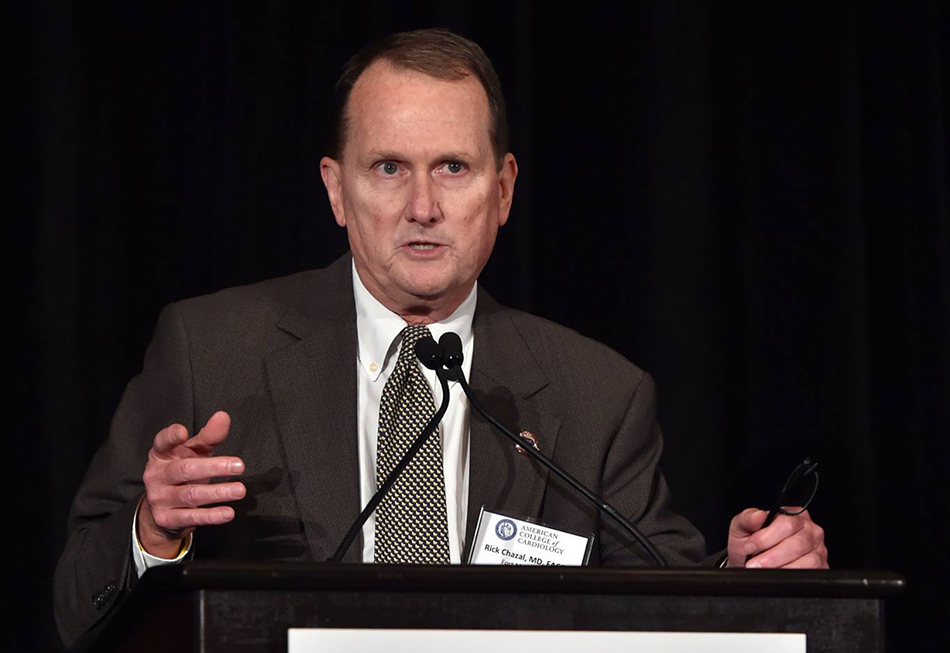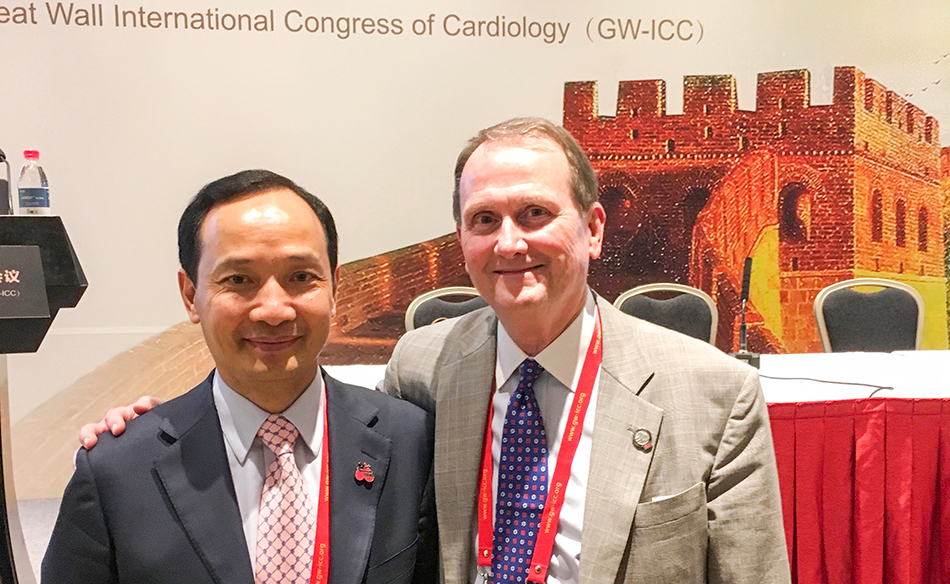Get to Know Your Leaders: Chazal Reflects on His Presidency
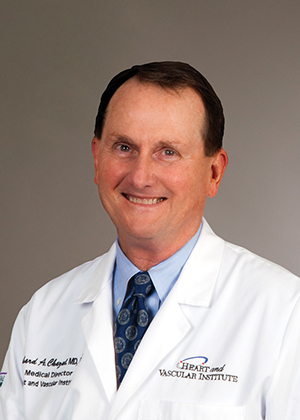
Reflecting upon his year as ACC president, Richard A. Chazal, MD, FACC, shares his top presidential priorities and how they have influenced the ACC, as well as some advice for current and emerging leaders in the field of cardiovascular medicine and care.
What were your top priorities as president for the 2016-2017 term?
The College and its leaders continue to focus on effective implementation of the ACC’s Strategic Plan, which is centered on the key areas of purposeful education, transformation of care, member value and engagement, and population health. As president, I have strived to work with ACC members and staff to clarify and communicate four significant issues that fall under the current Strategic Plan, and require particular attention in today’s changing health care landscape. These are: Maintenance of Certification (MOC), the Medicare Access and CHIP Reauthorization Act of 2015 (MACRA) and the transition from volume to value, the evolution of ACC’s governance process, and the addition of ACC Accreditation Services to the College’s portfolio.
How do you feel the College has responded to these priorities? Would you share how the needle has been moved or progress made in each of these four areas?
Guided by the priorities outlined as part of ACC’s Strategic Plan, the College has been able to make a tremendous amount of progress on behalf of patients and physicians in each of these areas:
MACRA: The College is committed to helping members understand and navigate MACRA. As it is implemented, MACRA will have profound impacts on care delivery in the United States – particularly as the system evolves to one focused on value rather than volume. We are cognizant that due to changes in Washington following the 2016 election, there may be modifications to the implementation, but it is important to remember that MACRA was the product of a broad and strong bipartisan consensus and is separate from the Affordable Care Act. Repeal is not likely due to economic pressure on the Centers for Medicare and Medicaid Services (CMS) and bipartisan support of the law.
Congress continues to exercise oversight over the implementation of MACRA by CMS to ensure that the intent of the law is maintained in regulation. MACRA’s key architects remain in Congress and are committed to its principles. We encourage members to continue with preparations to meet MACRA requirements in 2017.
There will be opportunities for medical specialty organizations such as the ACC to have input through the regulatory process to establish how the law will function. We will be at the table.
MOC: In the past year, the American Board of Internal Medicine (ABIM) has made substantial changes to its MOC process in response to concerns raised by physicians and specialty organizations, including the ACC. Last year, the ABIM announced plans to offer a new MOC assessment option beginning in January 2018. Under the new option, physicians who “engage in and perform well” on shorter assessments would have the option to test out of the current 10-year exam. The 10-year exam will remain available as a second option. The ACC is one of three medical specialty societies currently working with the ABIM to explore a “Society Maintenance Pathway” option that would serve as an alternative to the 10-year exam.
"The ACC’s ultimate goal is to transform cardiovascular care and improve heart health – and I believe the College has a duty to not only focus on that mission, but ensure that patient care remains at the center of all that we do as an organization and as professionals."
However, MOC continues to rank among the top concerns of our internal medicine members. While the College is encouraged by ABIM’s move in the direction of more flexibility in MOC requirements, more details are needed. ACC leadership continues to explore all options regarding the MOC process, but hopes that ABIM will tailor its final plan to be consistent with the ultimate goal of finding a solution(s) that best allows clinicians to maintain and demonstrate competence as it relates to patient outcomes, quality care and cost-effectiveness.
ACC Accreditation Services: The addition of accreditation services to the ACC’s existing suite of quality improvement offerings, such as NCDR and continuing education, provides the College with a unique opportunity. ACC is working toward developing systems that support hospitals, health care systems and the cardiovascular care team in the delivery of high-quality, patient-centered, cost-effective cardiovascular care with improved outcomes.
In the past year, the ACC joined with the American Heart Association (AHA) to announce a new collaboration that will offer hospitals and institutions a single source of state-of-the-art accreditation tools to bridge gaps and integrate evidence-based science, quality initiatives, clinical best practices and the latest ACC/AHA guidelines into their cardiovascular care processes. Now U.S. hospitals can take advantage of a suite of co-branded accreditation services focused on all aspects of cardiac care.
The College is committed to creating a unique value proposition that includes but also goes beyond accreditation to integrate relevant NCDR registries, quality improvement initiatives and education. The Cardiac Cath Lab Accreditation program is the first of these offerings. The program provides actionable data to support clinical decisions, link process improvement to patient outcomes and promote consistent processes across the care continuum. It is the first accreditation program to use NCDR data from the CathPCI Registry.
Governance: The ACC’s governance transformation, while an evolving process, is moving forward steadily to make the College more nimble, strategic, accountable and reflective of the diversity and breadth that exists within the global cardiovascular community. While the size of the Board of Trustees (BOT) will go from an original 31 members to 13 when the transformation is complete in 2018, the changes have increased the number of leadership opportunities within the College. The primary principles of centralized authority and decentralized decision-making have empowered leaders at chapter, committee, council and section levels.
The BOT recently approved the College’s Authority Matrix – which you can view on ACC.org, under the About ACC Leadership and Governance section – that outlines how decentralized decision-making and centralized authority will be operationalized moving forward. The governance transformation process involves a concerted effort by the BOT and the Governance Committee to listen to members as part of the critical continuous feedback loop and to course-correct and modify the transformation plan as needed.
"I expected many things from serving in this position, but I did not expect to make so many close connections, extraordinary relationships, and have such touching moments with counterparts in cardiology around our country and across the globe."
What do you consider as the College’s greatest strengths over the past year?
There have been two areas of great strength for the ACC over the last year. First, the College membership and leadership are fixed on doing what is best for patient care. The College as an institution sees its value in its mission statement, which is ultimately all about the patient. Second, the College is unique in that it is fueled by unparalleled collaboration between highly engaged members and dedicated staff who share a drive to meet the mission of the organization. This past year, and every year that I have worked with the College, these two groups come together to leverage their contributions to achieve meaningful results.
Would you share with us one of your favorite moments from the past year?
This year has been filled with experiences, connections and moments I will remember for the rest of my life. Some of the most wonderful memories are ones of quiet kindness and graciousness displayed by leaders in medicine from around the world. One such example is a connection with Chang-Sheng Ma, MD, FACC, director of the Great Wall International Congress of Cardiology. Professor Ma and I both have Chinese daughters, as my youngest was adopted from China. Despite a vast geographic distance between my home state of Florida and his practice environment in China, we found a unique bond in talking about our families.
Similarly, during a trip to the annual conference of the Israel Heart Society in Tel Aviv, I connected with its past president Yoseph Rozenman, MD, FACC and his wife, Orit, who offered to take time out of her busy schedule to take me to Jerusalem for a once-in-a-lifetime day trip. Another occasion is a terrific evening in Rome spent with my counterpart from the European Society of Cardiology, Jeroen Bax, MD, PhD. He is a thoughtful and generous friend and colleague.
Gestures of kindness and welcoming warmth such as these from counterparts in so many places transcend borders. I have had similar experiences in Malaysia, the United Kingdom, Puerto Rico, Mexico... and most importantly, across our many state chapters. I expected many things from serving in this position, but I did not expect to make so many close connections, extraordinary relationships, and have such touching moments with counterparts in cardiology around our country and across the globe. These connections truly make the world of cardiovascular medicine and patient care a much smaller place.
What advice do you have for future ACC leaders?
Serving as president of the ACC has been the opportunity of a lifetime. It has been intellectually, professionally, and personally broadening. Over the last year, it has been clear that to do this job justice – to serve well – requires a tremendous amount of time and effort, as well as substantial personal energy and emotional investment. Those who want to become leaders of the College should know that leadership roles are demanding and may not be for everyone... but the payback is huge.
Further, I am hopeful that institutions – academic or non-academic, practice or integrated systems – will increasingly recognize the value that having an ACC leader on their staff provides to their institution. Because the time commitment is so great, employers must recognize the value of this relationship and I hope future ACC leaders will consistently and persistently communicate this value.
What is your hope for the future of the ACC?
It is my hope that the ACC continues to grow as a vehicle for serving cardiovascular professionals as they work to achieve the highest quality of care for patients. The ACC’s ultimate goal is to transform cardiovascular care and improve heart health – and I believe the College has a duty to not only focus on that mission, but ensure that patient care remains at the center of all that we do as an organization and as professionals.
Keywords: ACC Publications, Cardiology Magazine, ACC17, ACC Annual Scientific Session
< Back to Listings

